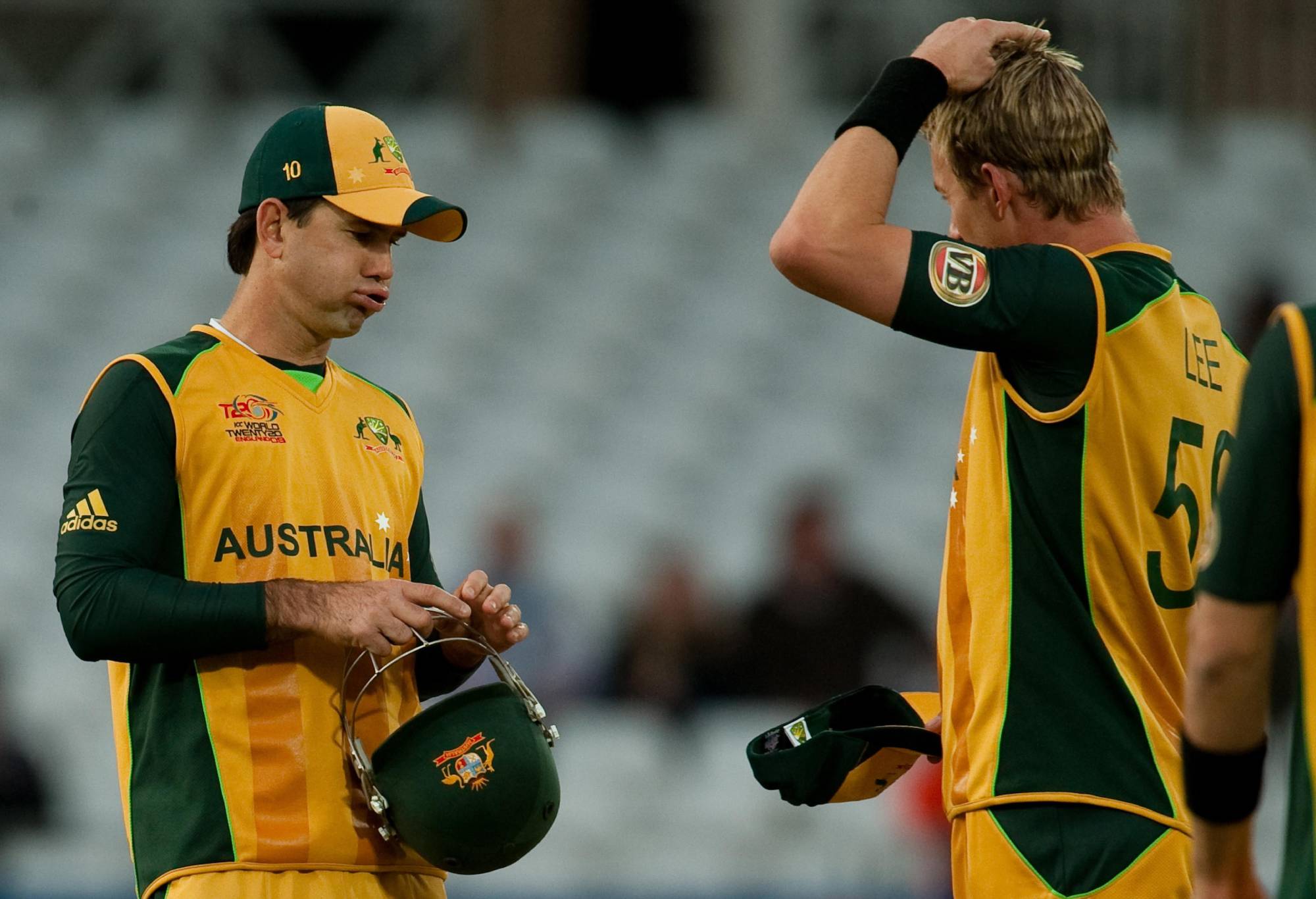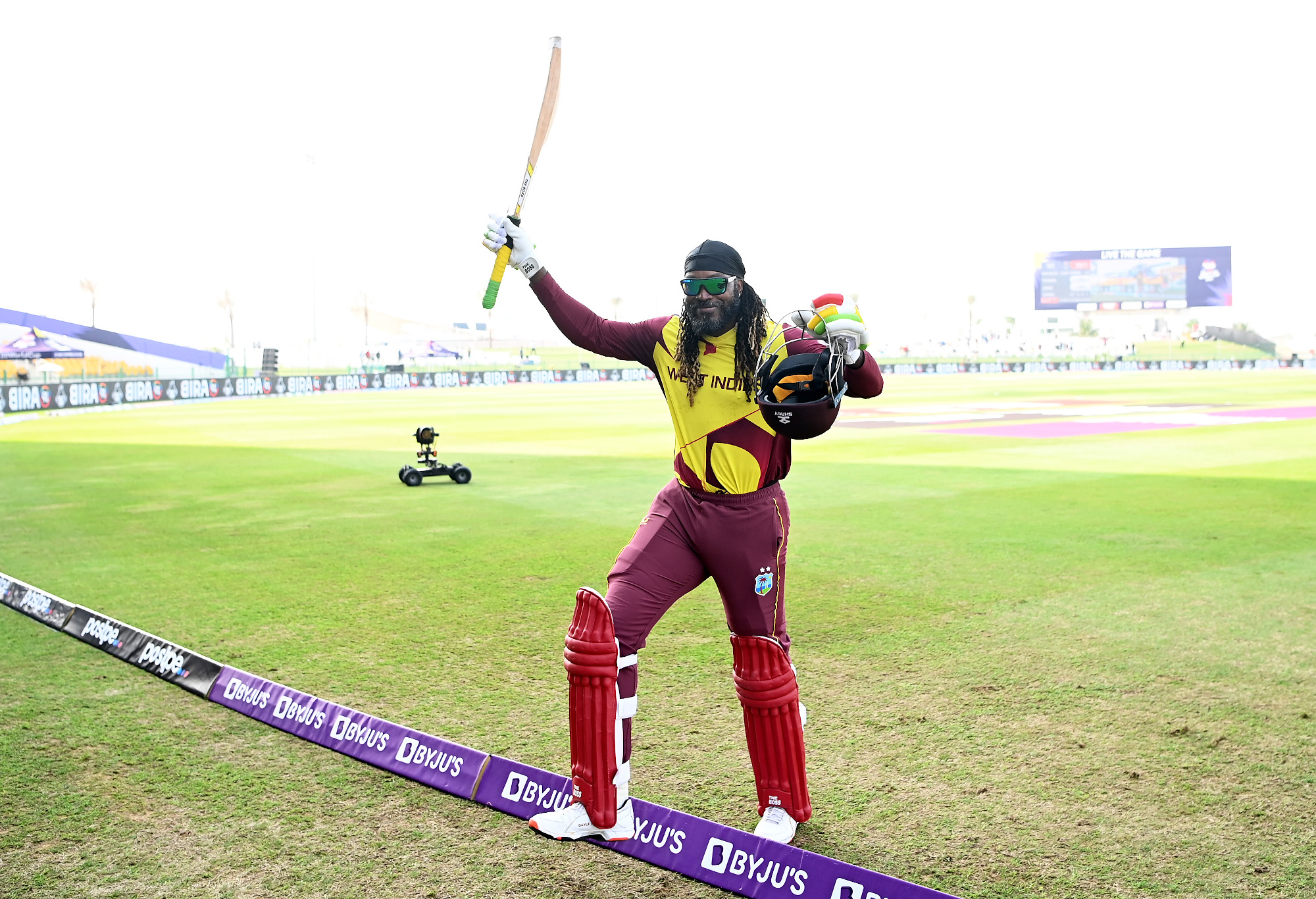In 2021, Australia won its first ever T20 World Cup. (Well, first ever men’s T20 World Cup – the women had won hundreds of the bloody things.)
Sadly, however, almost no Australian cricket fans were watching this happen live. Despite New Zealand and Australia making the decider, the ICC had refused to even contemplate nudging the match towards anything resembling a viable time zone for the finalists’ fans back home.
Instead, Mitch Marsh’s World Cup-winning heroics were completed around 4:25am on the east coast of Australia, which was quite the startling surprise to wake up to.
Fans’ surprise at waking up to a T20 World Cup victory was not solely because of Australia’s historical hopelessness in the tournament over the years. It was also because of their general disregard for the format.
It was somewhat of a chicken and egg question. Were Australia hopeless in World T20 tournaments because they didn’t care about the format as much as other nations? Or did they not care about the format as much as other nations because they were so hopeless in World T20 tournaments?
This is excerpt from Dan Liebke’s new book The 10 Greatest World Cup Wins in Australian Cricket, counting down Australia’s best tournament victories. Click here to pre-order your copy, with the book on sale from October 25
As with most chicken and egg situations, the answer was a repeating cycle in which each outcome begat the other. But unlike other chicken and egg situations, this repeating cycle had a definite starting point.
The Australian cricket team treated T20 cricket as a joke from the very beginning. They played the first men’s T20 international in 2005 and took the opportunity to entertain the fans with such antics as wearing retro kits, sporting retro moustaches and unveiling retro underarm deliveries. Australia won the match, but this was mostly a happenstance.
Even when other nations began to take the format seriously enough to hold the inaugural World T20 in South Africa in 2007, Australia maintained a heroically laissez-faire attitude.
In ODI World Cups, they had not lost a match in eight years. In the 2007 World T20, they lost the first game they played. To Zimbabwe, who ran down Australia’s 9-138 with a ball and five wickets to spare.
Ricky Ponting’s men smartened up their act a little after that. Matthew Hayden scored the most runs. Brett Lee took the first T20 international hat-trick. And Australia made their way to the semi-finals. But they were knocked out by India, who would go on to defeat Pakistan in the final.

Australia’s Brett Lee with captain Ricky Ponting following the ICC World Twenty20 match at Trent Bridge, in Nottingham, 2009. (Photo by Gareth Copley – PA Images/PA Images via Getty Images)
(India and Pakistan also played earlier in the tournament and tied their match. Instead of Super Overs, however, this inaugural tournament had a bowl-out to decide ties. This was an infinitely more hilarious option in which bowlers bowled at batterless stumps. It was the equivalent of a goalkeeperless penalty shoot out in soccer. And a sight far funnier than it should be. India won that one too.)
In 2009, the World T20 was held in England, simultaneously with the first women’s World T20. The Australian men were knocked out straight away. The young West Indies batter Chris Gayle was beginning to make a name for himself (that name? ‘Chris Gayle’. Imagine the odds!) in the newfangled Indian Premier League that had coincidentally sprung into being almost immediately after India won the first World T20.
Gayle launched his way to 88 off 50 balls to give Australia yet another opening match defeat. A loss to Sri Lanka in the second match saw Australia exit the tournament, which Pakistan went on to win. The Australian women hung around longer in their tournament. But weirdly, did not win it. (They soon sorted that out, winning the next one, then the one after that, and the one after that, and…)
In the West Indies in 2010, Australia made the final of the tournament without dropping a match. They powered through the group stage, with a particular highlight Shane Watson’s bombastic innings of 81 (49) against Pakistan. Australia then dominated their half of the Super Eight stage. This time the highlight was promising young leg-spinner Steve Smith taking 3/20 off his four overs to end the West Indies’ tournament. Finally, they won the semi-final against the defending champions Pakistan. Highlight: a miracle batting display from Mike Hussey who blasted 60* off 24 balls in the semi-final to reach the decider.

(Photo by Gareth Copley-ICC/ICC via Getty Images)
But any hope that this 2010 success might see Australia take the tournament more seriously going forward was undone by the result of that final. England had made the Super Eights despite not winning a match during the group stages. (How did they do this? Why, they called on England’s traditional and most reliable ally, the rain, of course.) From there though, they’d dominated much like Australia. And, ultimately, more so. They went on to win the final, with Kevin Pietersen at his peacock best. It was the England men’s first World Cup win of any variety. Impossible to respect a tournament that would allow such an outcome.
And so in 2012, only one Australian player took the tournament seriously. He did, however, take it very seriously indeed. Watson was player of the match in the first four matches that Australia played, enough to secure them a semi-final spot. But another Chris Gayle special (75* from 41 balls) saw them knocked out, as the West Indies went on to raise the trophy.
In 2014 in Bangladesh, the tournament was expanded. Six associate nations joined hosts Bangladesh and Zimbabwe in a preliminary stage. The top two sides would earn the right to join the other eight full members in the main part of the tournament. In the final match of this first stage, the Netherlands needed an improbable 190 runs in 14.2 overs against Ireland to boost their net run rate sufficiently to go through. Even more improbably, they succeeded, reaching 4/193 from 13.5 overs in a remarkable display of carefree power hitting.
It was the kind of exhilarating moment Australia came nowhere near emulating. Instead, they won one match – their group game against Bangladesh. But otherwise stumbled against Pakistan, West Indies (yet another Gayle-led run chase) and India to exit before the semi-finals.
Sri Lanka went on to win the 2014 World T20, the fifth different winner in five tournaments. Much as with the early editions of the Champions Trophy, Australians took this as yet another point of evidence against the World T20 tournaments. How can you take a tournament seriously when different teams are crowned the best in the world every couple of years? Doesn’t that suggest a format in which there’s no real skill involved and it’s all a matter of which team’s the luckiest on the day? (cough And pay no attention to the Australian women, who’d just completed a hat trick of World T20 wins cough).
In 2016, the West Indies broke this trend of champion inconsistency in the men’s game. (And also that of champion consistency in the women’s game, upsetting the Australians in the final.)
The Australian men didn’t get close to the 2016 final, knocked out in the group stage. Instead, the men’s final saw the West Indies up against England. This was early in England’s determined rebuilding of their white ball sides after the debacle of the 2015 ODI World Cup.
But Eoin Morgan’s side had made great progress already. They dominated all comers during the tournament, with the highlight being a scarcely believable chase of South Africa’s 4/229.
The only match England dropped on their way to the final was against the West Indies. The man to blame? Chris Gayle, who hit an unbeaten century from 48 balls.
But in the final, Gayle was not a factor. Defending 9/155, Joe Root opened the bowling and took the wickets of both Gayle and fellow opener Johnson Charles. With that early twin breakthrough, England were well on top. And, from there, they skilfully squeezed the life out of the West Indies chase. By the time the West Indies needed nineteen off the final over from Ben Stokes – a brilliant finisher with the ball – the trophy was England’s.
That, of course, is when Carlos Brathwaite etched his name forever into cricket fans’ memories with four consecutive sixes.
It was a reminder that nothing could be taken for granted in a World T20 tournament. Heck, as crazy as it might seem based on past experience, even Australia might someday win one.
This prospect became marginally less crazy when the 2021 version was renamed from World T20 to the more serious T20 World Cup.
“Oh, these are World Cups? Well, why didn’t you say so sooner? Yes, we’ll have one of those, thanks very much.”
>Cricket News

0 Comments